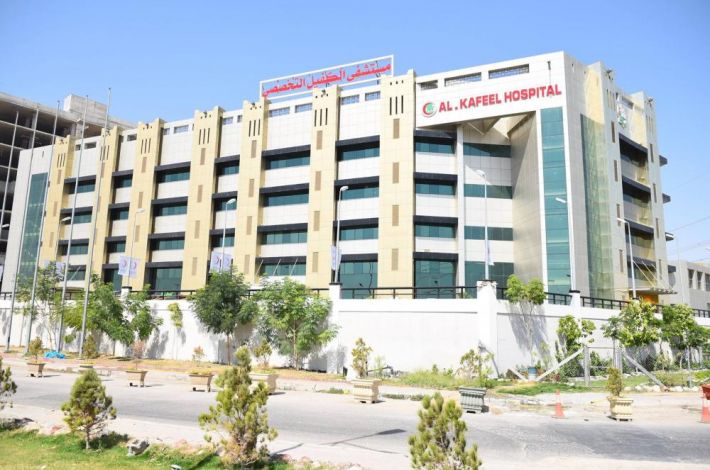Al-Kafeel Super Speciality Hospital of the al-Abbas's (p) Holy Shrine denied the information that some of the social networking sites are concerned about its rooms high prices, and stressed that this information is unfounded and is promoted by those who do not have accurate information about the success of the hospital and its services that compete with hospitals in other countries.
The hospital media issued a clarification about this subject stating: "The patient's hospitalization fees is of 75 thousand dinars a day, including the accommodation services, the meals for the patient and the nursing services. This service is provided according to the international quality system and are similar to the services provided by hospitals abroad that some Iraqis travel to in order to get the treatment."
He added: "The patients who has serious cases are admitted in the intensive care unit [ICU], which has Iraqi and foreign special medical and nursing staff, who are working around the clock to follow-up and give the treatment to the patients. The daily fees for the ICU are of 200 thousands dinars, which is the equivalent to one third of what the patient pays in hospitals abroad."
Adding: "There are other very dangerous cases that require special treatments and care to save the life of the patient. The prices are different from other prices mentioned above."
It is to note that the hospital finances with its income all its services and care for the poor patients. The high prices of operations are due to the high price of the used advanced devices that are comparable to what exists globally and require continuous maintenance. All hospital operations are carried out by specialized doctors for a certain percentage of the amount paid by the patient, as they are expatriate Iraqis and foreigners with experience and global successes.
The second part of the amount paid by the patient is to cover the salaries of employees, resident doctors and nurses, and to cover the hospital's expenses of electricity and water, the expenses of its service laboratories, government collection services, and the expenses of tickets, visas, residence and protection of foreign doctors. The remaining amount covers the "Doctors Without Wage" project, which aims to help poor patients and patients of popular mobilization from all factions, and the project (reduction), which provides operations for poor patients free of charge or at reduced cost.
